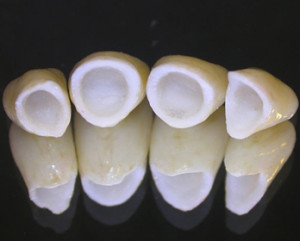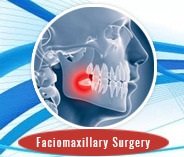A dental crown or a tooth crown is a tooth-shaped “dental cap” that is placed over a tooth. Dental crown procedures restore a tooth’s shape and size, strength, and/or improve its appearance. Crowns encase the entire visible portion of a tooth //? from top of tooth to the gum line

Why is a dental crown needed?
A dental crown may be needed to:
- Protect a weak tooth (e.g., from decay) from breaking or to hold together parts of a cracked tooth
- Restore an already broken tooth or a tooth that has been severely worn down
- Cover and support a tooth with a large filling when there isn’t a lot of tooth left
- Hold a dental bridge in place
- Cover misshaped or severely discoloured teeth
- Cover a dental implant
- Cover a tooth that has been endodontically treated (had a root canal)
Types of Dental Crowns
Dental crowns can either be temporary or permanent. Temporary crowns can be made in your dentist’s office whereas permanent crowns are made in a dental laboratory. Temporary crowns are made of acrylic or stainless steel and can be used as a temporary restoration until a permanent crown is constructed by the dental laboratory. Permanent crowns can be made from all metal, porcelain-fused-to-metal, all resin, or all ceramic materials.
- Metals used in crowns include gold alloy, other alloys (for example, palladium) or a base-metal alloy (for example, nickel or chromium). Compared with other crown types, less tooth structure needs to be removed with metal crowns, and tooth wear to opposing teeth is kept to a minimum. Metal crowns withstand biting and chewing forces well and probably last the longest in terms of wear down. Also, they rarely chip or break. The metallic colour is the main drawback. Metal crowns are a good choice for out-of-sight molars.
- Porcelain-fused-to-metal dental crowns can be colour matched to your adjacent teeth (unlike the metallic crowns). However, more wearing to the opposing teeth occurs with this crown type compared with metal or resin crowns. The crown’s porcelain portion can also chip or break off. Next to all-ceramic crowns, porcelain-fused-to-metal crowns look most like normal teeth. However, sometimes the metal underlying the crown’s porcelain can show through as a dark line, especially at the gum line and even more so if your gums recede. These crowns can be a good choice for front or back teeth.
- All-resin dental crowns are less expensive than other crown types. However, they wear down over time and are more prone to fractures than porcelain-fused-to-metal crowns.
- All-ceramic or all-porcelain dental crowns provide the best natural colour match than any other crown type and may be more suitable for people with metal allergies. However, they are not as strong as porcelain-fused-to-metal crowns and they may wear down opposing teeth a little more than metal or resin crowns. All-ceramic crowns are a good choice for front teeth.
- Stainless steel crowns in pediatric dentistry Stainless steel or chrome steel crowns are one of the most durable restorative (filling) materials used in pediatric dentistry. They are usually made of stainless steel and hence the name. They are biocompatible and do not corrode in the moist atmosphere of the oral cavity even after many years.
Complications of Dental Crown Procedure
Your newly crowned tooth may be sensitive immediately after the procedure as the anesthesia begins to wear off. If the tooth that has been crowned still has a nerve in it, you may experience some heat and cold sensitivity. Your dentist may recommend that you brush your teeth with toothpaste designed for sensitive teeth. Pain or sensitivity that occurs when you bite down usually means that the crown is too high on the tooth. If this is the case, call your dentist. He or she can easily fix this problem.
Cost of Dental Crowns
Cost of a dental crown or a dental cap varies depending on what part of the country you live in and on the type of crown selected (for example, porcelain crowns are typically more expensive than gold crowns, which are typically more expensive than porcelain-fused-to-metal crowns). Generally, crowns can range in cost from $800 to $1,500. The cost of crowns is not generally fully covered by insurance. To be certain, check with your specific dental insurance company.















